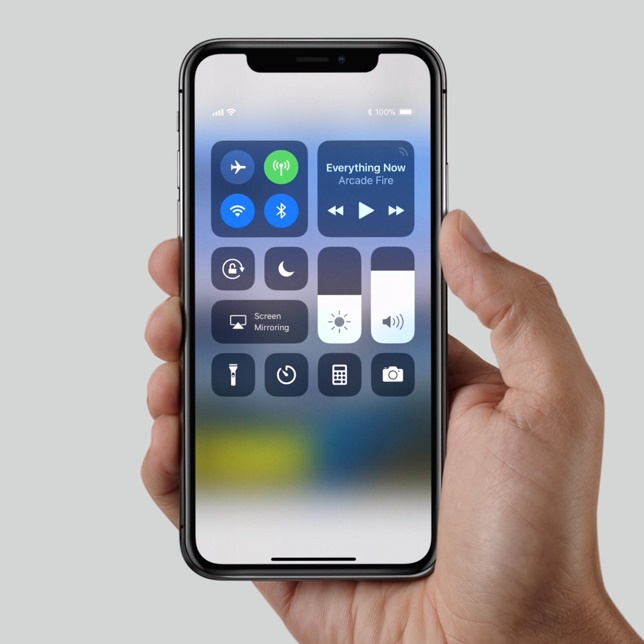Consumer Electronics
Consumer Reports Gives iPhone X Poor Marks for Broken Glass, Battery Life

Published:
Last Updated:

Apple Inc.’s (NASDAQ: AAPL) iPhone X is not the best smartphone in the world. Despite its many strengths, new Consumer Reports tests faulted it for a screen that breaks too easily and poor battery life. The smartphone was praised in the same study for its camera and display.
In the new smartphone study, Samsung’s Galaxy S8 was ranked first with a score of 82, on a scale that rises as high as 100. Its price is $770. Samsung’s S8+ ranked second with a score of 81. Its price was listed at $835. The iPhone 8 and iPhone 8 Plus each got a score of 81. The price for the iPhone 8 Plus was listed at $800 and the iPhone 8 at $700.
The iPhone X received an 80, which still met the standards for receiving a Consumer Reports recommendation. Its price was pegged at $1,000. Other smartphones received the same rating: the LG G6 at $585, the Samsung Galaxy S7 at $535, the Samsung Galaxy S8 Active at $700 and Samsung Galaxy Note 8 at $930.
Which iPhone should people buy, or should they buy one at all? Consumer Reports editors comment:
If you’re looking for a new iPhone, is the X worth the $1,000 and up that Apple is charging? That depends on your preferences.
A lot of people would argue that the iPhone X represents the future of smartphones. It boasts the best overall camera results in CR’s testing and one of the best displays we’ve ever seen on a phone. And while you don’t get the familiar Home button, you pick up a decent amount of screen space in a phone that’s significantly smaller than the 7 Plus and 8 Plus. It’s easier to hold and use, not to mention lighter to carry.
And Face ID works very effectively. The phone seems to unlock as soon as you pick it up and even think about making a call. Its gesture system takes some getting used to, but it’s not overly cumbersome or difficult to use.
Taken as a complete package, this phone ranked a bit lower than Samsung’s S8, S8+, and Note8, mainly because of their superior battery life. But many longtime iPhone users aren’t interested in switching to Android, so the real question for them is whether to save a few bucks—or, actually, a couple hundred—and go with an iPhone 8 or 8 Plus instead.
That really isn’t an answer.
Thank you for reading! Have some feedback for us?
Contact the 24/7 Wall St. editorial team.